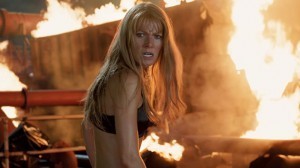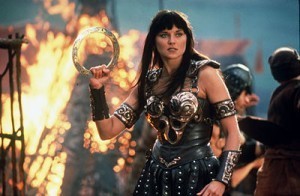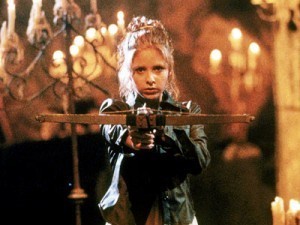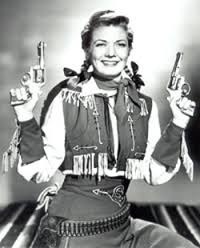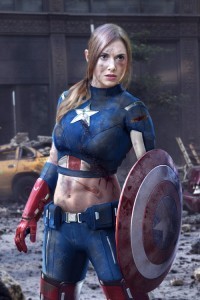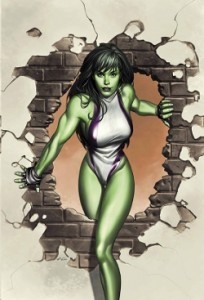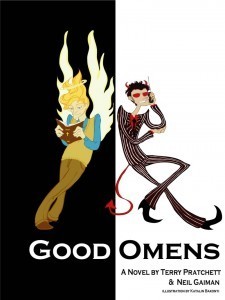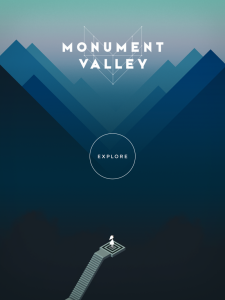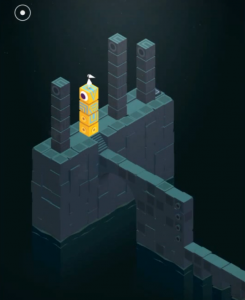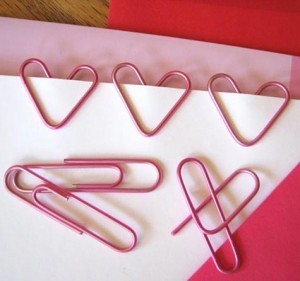Jennifer Crusie's Blog, page 269
May 8, 2014
The End of History Problem in Planning a Writing Career
The End of History Illusion is the common assumption that, wherever we are in life, we have become who we were meant to be, that we made mistakes in the past–dated the wrong person, got a dubious tattoo, made dumb investments, whatever–but NOW we’re grown up, we’re smarter, we know what we’re doing, and we know who we are.
The problem is, time passes and the End of History moves with us, and that time ten years ago when we thought we knew it all, knew exactly how the rest of our lives were going to go, knew who we were forever? Yeah, we changed and now that’s part of our history, we’re not like that anymore but THIS time, THIS is the End of History.
I think for a lot of people, that’s just an amusing tic, something you look back on and think, “How could I have been so wrong?” laugh, and move on. But if your career is tangled up in who you are, the End of History Illusion can be a huge problem. Take writers, for example.
We tell the stories we have to tell in the beginning, the stories of our hearts. Then some of us get published, and when we get published we get marketed, aka branded, because that’s the best way to sell books and everybody involved wants to sell books.
So let’s say for example, you start writing romance, and people think you’re funny, and bam, you’re a romantic comedy writer. That’s okay, you like writing what you like, so it’s not a problem. Then ten years go by, you write a romantic comedy novel that gets rave reviews, you’re poised for super-stardom, all you have to do is write another romantic comedy and . . .
You’ve changed. You’re not the person you were ten years ago. It’s not that you like romantic comedy any less, it’s that that’s not where your head is anymore. You started writing at 41, which was certainly The End of Your History, everything after that would play out as planned, but now you’re 51, and History moved, and now romantic comedy is who you used to be, not who you are now. That’s not a problem unless the world has slotted you as a romantic comedy writer, you’ve been branded as a romantic comedy writer, and now you have to choose:
Are you going to try to drag yourself back to where you were ten years ago to fit your very successful brand? Or are you going to say, “I’m sorry, that’s just not me any more,” and try to figure out who the hell you are now and what you’re going to write now?
A lot of people take Option A and keep writing the same thing, and if they can do it, more power to them, it’s clearly the financially smart thing to do. Others take Option A and try to slowly morph it, moving away by increments, although that usually doesn’t work since readers usually aren’t reading non-series books in the order in which they were written. Others are stuck with Option B because they can’t pretend to be who they were; they change, readers object, things fall apart unless the leap they’ve made gets them different readers, readers who will be very upset at the end of the next decade when The End of History moves again, and the writer has to reinvent herself.
An even bigger problem: What if she can’t reinvent herself? What if she’s written all the books she was supposed to write, and now it’s time for something different? Painting, music, water-skiing, welding . . . anything but writing. What happens then?
I think one of the most important aspects of career planning is taking into consideration the End of History Illusion; that is, I think any writer making a career plan has to assume that she’s going to change, possible radically, and factor in the evolution. You can probably with some degree of certainty what you’re going to feel like in six months, maybe a year. Five years? Nope. Ten years? Not a chance. And that’s why I think the best advice for writers planning careers is “Stay fluid and unpredictable.” Branding, the marketing tactic that everyone is so crazy about, is a trap and an illusion because once you’re branded, you’re stuck. That’s who you are, even if it isn’t.
I wrote a pretty good ghost story that got some pretty bad reviews on Amazon because it wasn’t a romantic comedy. I knew it wasn’t a romantic comedy. We didn’t promote as a romantic comedy. It doesn’t have a romantic comedy cover. And yet . . . I wrote a paranormal fantasy in collaboration with a guy; people complained that it wasn’t a romantic comedy. We knew it wasn’t a romantic comedy. We didn’t promote it as a romantic comedy. It didn’t have a romantic comedy cover. It didn’t matter, I was branded as a romantic comedy writer and people were disappointed because the books weren’t what my name implied to them. (Of course some people didn’t like the books just because they didn’t like the books. Can’t blame everything on branding.)
That’s why I think it’s a good idea to signal early and often that who you are is who you are; that is, if I’d established that I wrote Crusies instead of romantic comedies, I might not have had such a hard time when my End of History moved forward a decade, just as its moving now. At 64, I’m pretty confident that this is the real End of My History, except that my mother just celebrated her 88th birthday. If I get the same deal that Jo is getting, will I be the same person then? Not a chance. In fact, now that I think about it, I’m not sure I’m going to be the same person tomorrow.
The key, as always, is to write the stories you have to write, not write to market, but I think that’s not enough. I think that we have to remember to challenge ourselves, move outside our comfort zones, break whatever natural branding is growing up around us. The bigger the gap between who we are and what we write, the more likely we’re going to hit writer’s block and creative exhaustion. Maybe the question we need to ask is not “What should I write next?” but “Where can I go next?” And then remember that wherever we go, eventually we’re going to end up some place else.
Read more about The End of History Illusion on io9 and on Psychology Today.

May 7, 2014
Gender-Swapping Characters: Does That Work?
io9 has a post talking about artists who swap genders of existing characters, and they linked to this comic, Spectrum Sliding by Allison “Mu” Jones, on the Oh Joy Sex Toy site. (Warning: other posts on the site are NSFW). Both posts made me think, and that means another meandering blog post while I work stuff out. (Yes, I’m thinking again. You have been warned.)
A lot of us began writing because we read the work of the others and thought, “I want to do that.” My two inspirations were Georgette Heyer and Dorothy Parker, and I started writing, not because I wanted to write like them, but because I wanted to have the effect they had, give that sense of “Yes, that’s how I feel, this story understands me as well as I understand it” to readers the way they’d given it to me. Fortunately for me, Heyer and Parker were both female, writing female-centered stories. What happens if your kind of story doesn’t have female protagonists? What happens if you want to save the world by battling the giant whatsis? Defeat the Nazi’s with a whip and cool hat? What happens if your genre is male?
So you gender-switch, and that can produce a lot of great stories, but those stories are not like the originals because gender has a huge impact on character. You can do the Sensitive Guy and the Tough Girl, but they’re never going be exactly like the original Sensitive Girl and the Tough Guy that inspired them. Gender matters. I think the gender-switch is a great idea, I’m all for it, but it does it really make a place for the opposite gender in the genre if the story changes?
I think the change in story is one of the reasons women write romance and men write superhero comics. Yes, I know a lot more women are writing comics now, I’m a huge Amanda Connor fan, but comic books are still a man’s (boy’s) world, full of boob windows and bending over. I think one of the reasons I love Harley Quinn so much is that she keeps blowing up story lines; I love comics, but I’d like to see some of those narratives blown off the planet. Harley Quinn may die one of these days, but she’s not going to get fridged; whoever takes her out will do it to take her out, not to deliver man-pain to the Joker. But even Harley is in there because she fell in love with the Joker. What happens if I want to be Captain America?
So I’m a skinny young girl who wants to join the Army in 1941–no, wait, I’d have to be WAC and they’d take me even if I was skinny because they wouldn’t let me fight. There were physical requirements for WACs, but they weren’t as stringent (you had to be healthy, not strong) and they included skin care and make-up tips, so not the same thing. Okay, I’m not very powerful (well, I’m a woman in 1942 which is when the WACs began, so yeah) but I want to help win the war so I join the WACs. That’s good.
And then a scientist recognizes my heartfelt desire to serve and turns me into a super soldier–no, wait, they won’t let me fight so they won’t waste the serum on me. It’ll have to be a radioactive spider.
Okay, so now I’m a super-soldier and I save . . . men? That’s not right. Real Men do not get saved by women. And who am I going to fall in love with? Better be a superhero who’s stronger than me because otherwise everybody will think my True Love is whipped. Thank God Superman is around today or Wonder Woman would never get a date; Steve Trevor was such a wimp.
Well, crap. At least there’s Wonder Woman . . . wait. How many Batman movies have there been? Ten, not counting the cartoons? How many Superman movies? Nineteen, twenty? How many Wonder Woman movies? [Crickets.] Crap, crap, crap. Back to gender-swapping. (Also this.)
The truth is, it’s damn hard to gender swap an action story because of our preconceptions, especially our ideas about male/female relationships. It worked with Ripley in Alien, and I think a large part of that was because there was no guy she was emasculating as a love interest. You can be a powerful, kickass heroine, just don’t have a male lover because that’s too far a reach.
I loved the final battle of Iron Man 3, but nobody really thinks Pepper is tougher than Tony, especially since the first thing he did was reverse the effects of the drug (albeit that was to keep her from dying from it, not because he didn’t want her more powerful than he was).
Xena was powerful, but her real love interest was Gabrielle, so she wasn’t emasculating a partner every time she kicked somebody’s ass.
Buffy was great at destroying bad guys, terrible at relationships; her one “normal” relationship ended because he couldn’t handle how much stronger she was, and her other two major relationships were with men who kind of enjoyed getting beat up by her.
The example I keep returning to is one from my childhood: Annie Oakley. Annie chased stage coaches and rescued people and shot bad guys and was just the BEST . . . until the last scene, where she was always in a pretty dress, standing under a tree, blushing and flirting with her boyfriend, Lofty. I was seven when the series ended, so that might have just been one episode, but what I do remember clearly was fantasizing about being Annie and having great difficulty slotting the guy into my fantasy. And what I decided–I remember this as if it were yesterday–is that I’d save the people on the stagecoach and then faint into my boyfriend’s arms. Cake: Having and Eating Accomplished.
And that’s why I think gender-switching is so hard. If we’ve internalized ideas of who we want to be, those ideas are part of us and attention must be paid. Yes, some of them need to be excised from the fantasy–that whole fainting into the hero’s arms had to go–but a lot of them are good changes. I have no wish to spray anybody with a machine gun. I can get behind a good swift stiletto, but I don’t need a phallic symbol spitting indiscriminate death, I get enough of that crap in real life. So we have to adapt the story when we gender-switch, but we have to keep the things that made us want to gender switch in the first place.
I love Captain America because his is an underdog story and because he knows who he is even though he wakes up in an alien environment beset by things he can’t imagine. I love Tony Stark because his arrogance is earned–he really is a genius–and because he learns and adapts while rarely losing his cool. I love Bruce Banner because he’s so smart and so angry and because dealing with that anger is both his cross to bear and his greatest strength (boy, can I relate to that). I can work with those ideas in female characters, I would love to work with those ideas in female characters, but I don’t see them having the same impact somehow.
When you make Captain America female, is there that same stirring old-fashioned response to the idea of Hero if she stands in her costume before an American flag? Or is she just a dirty Rosie the Riveter in red, white, and blue? Is Toni Stark just a self-entitled bitch with a cutting tongue? Is Brenda Banner just one period away from being a Destroying Woman? (I know there’s a She-Hulk, but she’s never as powerful as her cousin, Bruce, she never becomes an ugly monster, she just gets bigger and green, and she feels no angst about her plight, actually preferring her hulked-out form, which means she’s no Hulk. You know what might be interesting? A thin woman who hulks out into a huge, furious, powerful fat woman. I could work with that.)
As usual, I have no answers, but I’m really fascinated by this. I could write a female Indiana Jones, a female Han Solo, a female Cap, Tony, or Bruce, but they’d be so different from the originals that I’m not sure I’d accomplish my original goal, to give myself a role in the fantasies I love, a role that’s not The Girl.
So maybe I can’t have my cake and eat it, too. Maybe I just have to make new cake.
What do you think?
(Cory, where are you? We need you on this one.)

May 3, 2014
Cherry Saturday: May 3, 2014
Today is Lumpy Rug Day. This may be my favorite holiday EVER. I have no idea what it means, so I can make up my own way to celebrate as long as I involve an un-ironed rug. And chocolate. Maybe we should make this the Official Argh Holiday. Ideas? Questions? Comments?

May 2, 2014
Rupert Murdoch Just Bought Harlequin
I really wish I had something deep and insightful to say, but all I’ve got is, “Holy crap, Rupert Murdoch just bought Harlequin.” I wouldn’t care–wait, yes, I would, that’s going to have an impact on my industry–except that that means that Rupert owns seven of my books. The chances he’ll notice are slim, but still . . .
I suggest the article in the NYT because most of the rest are full of bodice ripper jokes and insights like, “Rupert Murdoch is getting a divorce, maybe he’s looking for love?” Morons.
I’ve read everything I can find on this, and nobody knows what’s going to happen. Which means it’s publishing as usual: whatever’s going on, it’s not what went on yesterday.
The world is just going to hell, that’s what I think.

April 26, 2014
Cherry Saturday: April 26, 2014
Today is “Hug An Australian Day.” Australians, identify yourselves so you can be embraced. (Robena)
April 25, 2014
Back Soon
As you may have noticed, I’ve been taking a blog vacation. Well, really an everything vacation. I didn’t notice, I was just overwhelmed, and then I finally said to myself, “Stop,” and I stopped everything while I found my feet again. This is healthy, although probably annoying, especially to those of you trying following Leverage Sunday. I’ll post a new schedule. Later. In the meantime, I’m giving myself that stillness and calm that Brene Brown talked about last week in the second Gifts of Imperfection course, a course that continues to make me saner by the week. Not sane; it just moves me along the spectrum some.
Today I read some of Good Omens (I must have read that book at least a dozen times; Pratchett never fails) and played five levels of Monument Valley, the most Zen game ever.
I finished it yesterday and started it again today–it doesn’t take long–and I still have no idea what it means, but it’s so lovely, I don’t care. Except I wanted the Totem to come back. The picture at the end is not enough.
There’s a rumor that they’re adding more levels, so maybe we’ll get him back then. Tonight I’m going to watch TV and crochet. I have Alison’s baby blanket to finish and people keep telling me Agents of SHIELD has finally gotten good, so I’m going to give that another shot. I saw the first eight episodes and they were so bad I stopped (I mean really, EIGHT EPISODES to get your act together?). Just heard that Arrow offed one of my favorite characters, another reason not to go back. Plus I have a long list of shows to watch that I missed on their first runs, not to mention Leverage.
Earlier I made brownies and chocolate cookies from sugar free cake mix, so I’m going to make mini-no-sugar-added-ice-cream-sandwiches with the cookies later. And while I’m pottering around, if I find my drill bits, I’m going to put up the shelf and cabinets in the kitchen. If I don’t, I’ll do it later. Because I am very Zen, thanks to one and a half games of Monument Valley and Brene Brown.
Here’s something Brown said that I’ve been thinking about: The opposite of play isn’t work, it’s depression. When I thought it through, that makes sense. Depression is a feeling of being trapped with no possible escape, life is going to be dark forever. Play is complete freedom with limitless possibilities, all light and air.
So what I’m doing now is play, and I’m fighting the good fight about not being guilty about it. Of course it helps that I did a serious rewrite of a first chapter earlier today (cut over two thousand words, my sword is swift), but other than that, I’m being completely unproductive.
I highly recommend it.
April 19, 2014
Cherry Saturday: April 19, 2013
Today is National Garlic Day. Garlic is delicious, non-fattening, and very very good for you. How often does that happen? Roll in it.
April 18, 2014
Exploiting You: What Should Go Into A Writing Book
Note: This post has been updated with suggestions from the comments after the first day.
I’m finally getting that oft-talked about writing book together, and I’m working on a plan of organization now so I can take the ten tons of text that I already have, edit it and add to it and generally get this done. (That’s probably a good two years of work right there.) Below is the first draft of my proposal for the book. I emphasize: FIRST DRAFT. So what I need to know is what you would like in a writing book that isn’t specified below, along with whatever you don’t like about this plan. Critique please . . .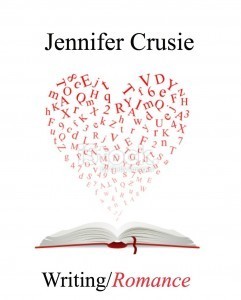
This is a writing craft book, not a creative writing book.
It should be accessible and informal, possibly oversized and spiral-bound.
Its presentation is based on the following concepts:
• People are at different stages in learning their craft, and the content should provide both beginning and advanced information.
• People learn in different ways: words, pictures, sounds, etc.
• People learn in small increments.
• People learn in patterns, not in a linear fashion
• People don’t read writing books from cover to cover, they look for the topics they need help with.
• People only absorb about 10% of what they read or hear (repetition is necessary).
Therefore, it’s important to present the information in easy-to-find sections that vary in length and depth and approach that repeat the key tools for good craft. So the plan is:
A. To divide the first part of the book into general writing craft topics: Conflict, Structure, Character, Setting, Unity.
1. The contract with the reader: voice, tone, promise, invitation
2. Conflict: protagonist, antagonist, goal (positive and negative goals), motivation, external conflict, conflict lock, crucible
3. Structure: linear, epic, frame, pattern, picaro, choose-your-own, contract with the reader
4. Linear structure: arc, pacing, escalation, turning points, stability, beginnings and endings, contract with the reader
5. Structure: subplots
6. Structure: scenes, beats, scene sequences
7. Character: protagonist, antagonist, ficelle, mentor, burden, barrier, minion
8. Character: establishment of (action, thought, dialogue, voice, other characters, authorial intrusion.)
9. Character: point of view, voice
10. Character: arc, internal conflict, vulnerability
11. Setting: time, place, community, context
12. Unity: authority in the text, endings and beginnings, subtext, motif, metaphor, theme
To divide each of those topics into sections:
1. The topic at a glance: 500 words that explains what the topic means
2. Diagrams or visuals that explain the topic
3. Definitions for the topic: the parts that make up conflict.
4. Longer, theoretical essays on each of the parts, discussing the topic in more detail and depth.
5. Exercises for each topic, ways to explore the topic using the reader’s WIP.
6. Essays that analyze a book, movie, or TV episode to illustrate the concepts.
7. A reading/watching list of good sources for more information on those topics.
8. Sidebars throughout with quotes from other writers, sections of books that illustrate the concept, Q&As from Argh and McD, etc.
9. A trouble-shooting section for problems most often encountered in those topics
B. To discuss how to draft in the second section, the process from idea to first draft, the idea that everybody finds her own path to Oz, the functions of different drafts, etc.
1. Idea to first draft; discovery
2. Drafting and discovery
3. Analyzing a complete first draft
4. Beta readers and critique groups
5. The finished manuscript
6. Example of scene (story?) through the draft process
C. To focus the second part of the book on writing romance, addressing each of the above topics in terms of the special problems of the romance genre.
1. Definition of the romance novel
2. Subgenres in romance fiction
3. Introducing the romance plot, cute meet, contract with the reader, vulnerability
4. Conflict in the romance plot
5. Writing love: the emotional arc
6. Writing love: the physical arc
7. Good romance tropes and bad (romcom run, Big Misunderstanding, Secret Baby, etc.)
8. Writing community: the social love story
D. To supplement the first two parts with additional materials that are related to the craft of writing:
1. An appendix on publishing.
The topics/parts should be coded with icons and edge-of-the-page/margin color:
Conflict – Red (bomb heart)
Structure – Yellow (gears heart)
Character – Pink (sunglasses hearts)
Setting – Green (tree heart)
Unity- Red-violet (button heart)
Those icons can then be used in sidebars to make connections between topics; for example, the impact of setting on point of view (in the e-book, these will be links). Other icons are a double heart for romance writing, a bandaid for troubleshooting, a cloud for discovery, and a shipping box with a heart for publishing.
The overall aim of the book is to make writing tools available to everyone in a way that’s welcoming and easy to understand, supplemented with essays that go deeper into the complexities of each tool for those who want more depth. We’re not trying to impress anybody: this is a craft book, not a creative writing tome. We’re talking about tools, not rules, and the underlying tone is that telling stories is something people do naturally, and this book is just to help those people tell those stories better.
Random Thursday
So I’m still not organized enough to do a real post, but since Argh has been empty since, uh, Saturday? I thought I’d check in with a Random post. Do not expect coherence, this is just Stuff.
Krissie just left on her way back to Vermont. Actual human interaction has distracted me and I got almost nothing done, but because Krissie is always interesting and extremely knowledgable, I learned a lot and thought a lot more, and that’s always good. The bad part: I couldn’t stay awake. I took one Claritin and one Benadryl and was out on my feet for a week. Weirdest thing. But Krissie got a lot done so that’s good.
We watched the latest Person of Interest last night. That show along with The Blacklist is one of the few where I’m totally on board with whatever the protagonist does while hoping desperately that he doesn’t cross a line where I can’t look at him any more (looking at you, Oliver Queen), and boy howdy did Reese come close. The beauty of it is that I’m not sure he made the right decision even though it was the one I had my fingers crossed for (trying to avoid spoilers here). Love it that they reference Joss Carter when trying to figure out the right thing to do, too.
Lifehacker has a good post on writing software.
“The Inside Job” post is coming up as soon as I find my notebook. Yes, I am cleaning. I’m actually making progress, but it’s trying to doeverything all at once that makes me lose big chunks of my life. I’m on it. Also, we’re watching “The Rashomon Job” for this Sunday’s Leverage, possibly my favorite Leverage episode of all time although there are several contenders for that spot.
Things has been a learning experience (that’s the To Do software I bought). I didn’t break the projects down into steps at first, so I had to go back and do that and assign each step a due date. If you don’t get the thing done, it rolls it over onto the next day, so when I looked at the list today, with the rollovers, I had 41 things, some of which were going to take hours. So I took out all the due dates and regrouped. The nice thing, the software doesn’t nag at you, it just lists what you have to do, so while I’m figuring out how to use it, I’m also learning how ridiculously I’ve been over scheduling myself and how impossible the demands I was making on myself were. So when I go back in there to schedule again, I’m going to estimate the number of hours something takes and then not schedule more than an eight-hour day. See, I’m learning. (Great software.)
I’m still fuming about RED 2. They echoed everything in RED 1 except all the subtext that made it meaningful, the tone which kept it in balance, the doppelgänger pro tag/antag, the great romance arc . . . well, basically, everything. Same writers, too. ARGH.
One of the things to do today is set up LastPass which is a password program that logs you into your sites with secure passwords, something that Heartbleed made me aware of. Speaking of which, did you notice that “Heartbleed” was part of the Samaritan interface on PoI when it was looking for Harold? This show is so on top of everything. Also, Shaw and Root drinking umbrellas drinks in Miami surrounded by unconscious gunrunners: I am now officially a Shoot ‘Shipper.
Another good thing I’ve learned about to-do lists: equally important are the Done lists you do at the end of the day, the list of what you’ve accomplished. This is especially good if your to-do had 41 things on it.
Toni sent me a link to the instructions to the air cleaner that she gave me last year and that I used religiously which was a huge, huge help with the allergies, and that I forgot I had EVEN THOUGH I CAN SEE IT FROM MY BED. Look, there are many things going on in my brain, I can’t remember everything. Although you’d think an appliance that kept me breathing would be fairly high up on the “Remember This” list.
I’m back in the summer bedroom again since the winter bedroom is really Krissie’s room, and it’s lovely back here. So much light. Not much heat, though, but this winter I discovered electric mattress pads which are SO much better than electric blankets, so I’m wrapped up snug in bed, typing and looking out over trees that aren’t quite ready to bud yet. The forsythia’s out, though, so YAY for that.
The dogs love the back bedroom, too. They can yell at the mickies out the back the window. My neighbor Carl says that the guy who used to live in my house used to call all the squirrels and birds and whatever “mickies.” It’s actually a useful term since there’s god-knows-what out there. There’s a mother bear with cubs a few houses down, so I keep an eye out for her down by the lake. The dogs aren’t allowed down there, but she might migrate up. The deer do and it makes the dogs insane. Not that they were balanced to begin with. So “mickies” is a good all purpose term for everything except the bears.
And now, back to work. That to-do list isn’t going to “Done” itself.
ETA: Searching for illustration for writing book (long story), I tripped over this:
http://www.designsponge.com/2009/02/d...
April 13, 2014
Apologies
There will be a short delay in the Leverage post; my allergies kicked in, and the only medication that’s keeping me breathing is also keeping me sleeping. Yes, I tried Claritin; doesn’t do a thing for me. Back when I figure out how to stay awake.

